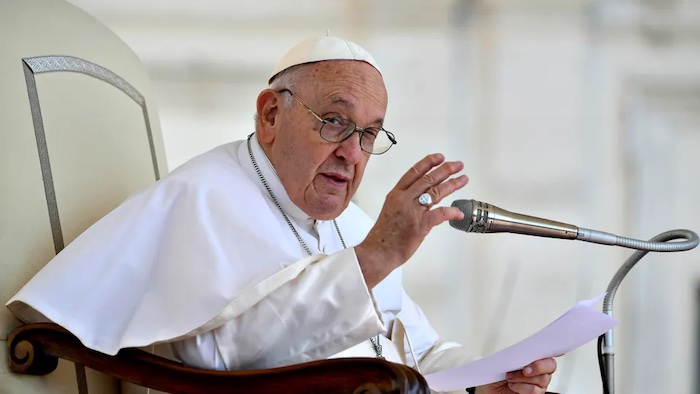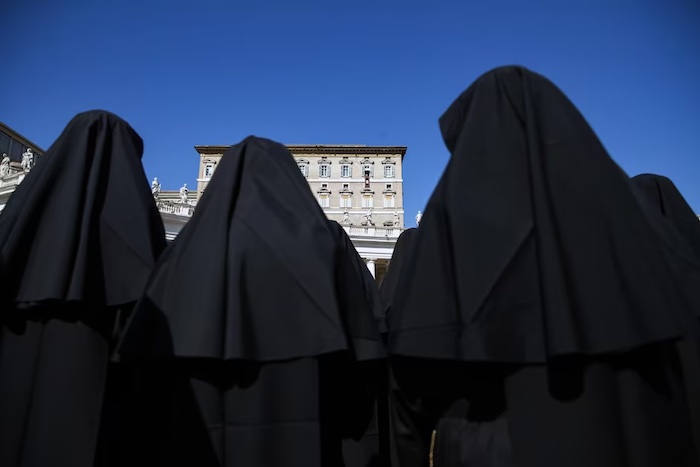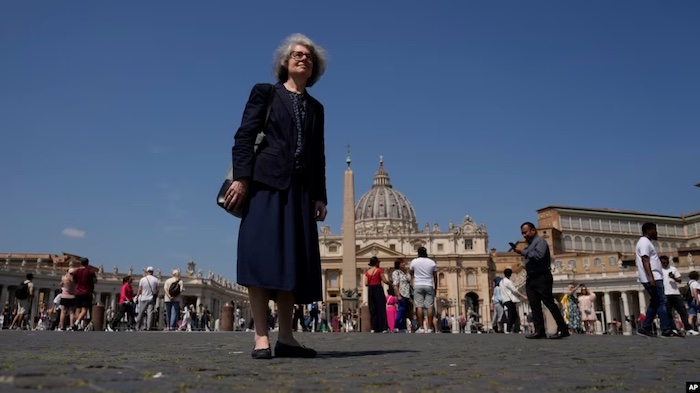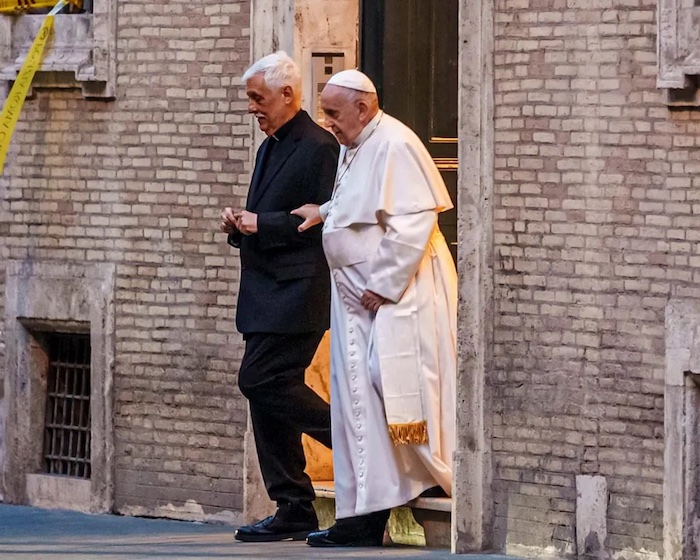— “We will not accept men telling women they can’t be priests because that’s the way God wants it,” Ms. Fitzpatrick once said. “She does not!”
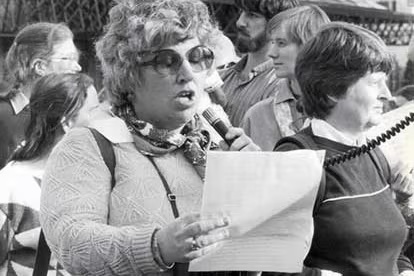
Ruth M. Fitzpatrick, a prominent and fierce advocate for the ordination of women as priests who called the Catholic Church “the last of the sexist institutions,” died June 15 at a long-term-care center near her home in Fairfax County, Va. She was 90.
The cause was cerebral arteriosclerosis, said her son John Fitzpatrick.
As the longtime national coordinator of the Women’s Ordination Conference, a Washington-based group she initially helped run from her dining room table, Ms. Fitzpatrick was an often combative champion for Catholic women who had, like her, felt the priestly calling of God.
“We will not accept men telling women they can’t be priests because that’s the way God wants it,” Ms. Fitzpatrick once said. “She does not!” Another time, she referred to the Church as a “dinosaur,” saying that “rigor mortis is setting in.”
In 1979, when Pope John Paul II visited Washington, Ms. Fitzpatrick and two other members of her group stayed up all night holding a candlelight vigil outside where the pontiff slept. In the morning, as he left, she shouted, “Ordain women!” The pope smiled and shook his head no.
After the pope issued an apostolic letter in 1994 declaring that priestly ordination “has in the Catholic Church from the beginning always been reserved to men alone” and that the church had “no authority whatsoever to confer” such status on women, Ms. Fitzpatrick blasted him in media interviews.
“We’re being put on a stake like St. Joan of Arc,” she told the Religion News Service. “This is an inquisition. No doubt about it.”
The Women’s Ordination Conference was founded in 1975, and Ms. Fitzpatrick became its first national coordinator in 1977, a position she held for a year before returning and holding the post again from 1985 to 1995. The organization says it seeks to “incorporate feminist, womanist, mujerista, and other liberating spiritualities into every-day Catholicism.”
Other denominations, Christian and otherwise, have allowed women to lead, but the Vatican has persistently declined to entertain the idea, though Pope Francis recently said women could vote at an upcoming meeting of bishops.
Kate McElwee, executive director of the Women’s Ordination Conference, called the pope’s announcement a “significant crack in the stained glass ceiling.”
The youngest of three children, Ruth Louise McDonough was born in Port Chester, N.Y., on March 10, 1933, and spent part of her childhood on Army bases from Georgia to South Korea. Her father was a colonel in the Army National Guard, and her mother was a homemaker.
She was raised in an Irish-Catholic home, felt a priestly call as a child and informed her mother, according to “The Inside Stories: 13 Valiant Women Challenging the Church,” a book she was featured in.
“Hold on,” her mother replied. “It will go away.”
It did not.
After graduating from West Philadelphia Catholic Girls’ High School, she attended Rosemont College in Philadelphia, which was then a women-only Catholic school. She withdrew to move with her family to Fort Benning, Ga., where she taught Sunday school and met John R. Fitzpatrick Jr., a World War II veteran who later served in the Korean and Vietnam wars. They married in 1955.
From 1969 to 1972, Ms. Fitzpatrick and her family lived in Naples. She led Vatican tours and made a pilgrimage to the Holy Land. She also worked with homeless children.
The family returned to the United States after her husband’s retirement. Ms. Fitzpatrick graduated from Georgetown University in 1975 with a bachelor’s degree in theology. She received a master’s degree in divinity from Washington Theological Union in 1997.
Ms. Fitzpatrick traveled the world on behalf of the Women’s Ordination Conference. In 1992, she led a trip to the Czech Republic in search of Ludmila Javorová, a woman ordained in the underground Catholic Church.
“Women who want to be priests don’t fall into stereotypes, just as there is no stereotype for a male priest,” Ms. Fitzpatrick said in the book “Catholics USA: Makers of a Modern Church” by Linda Brandi Cateura. “The women have one thing in common: the call comes from God. They have to work on that and it can’t be ignored.”
She added: “If I disappeared tomorrow, we’d still go on. Deep down, I truly believe that our aim is a gift from God; it’s a movement that cannot be stopped. It’s beyond us and is self-perpetuating.”
Ms. Fitzpatrick’s husband died in 2017. Survivors include their children, P. Kelly Fitzpatrick, Michael J. Fitzpatrick and John F. Fitzpatrick; six grandchildren; and a sister.
Ms. Fitzpatrick would knock on any door to advocate for women.
In 1987, carrying a basket of gifts with bread, wine and books about women in the church, Ms. Fitzpatrick and a colleague rang the bell at the Vatican Embassy.
No response. So they knocked again. Same result.
The knocked a third time — the Holy Trinity of doorbell ringing.
“It’s symbolic, don’t you think?” Ms. Fitzpatrick told a Newsday reporter who accompanied them. “We are women, knocking on the door of our church, bringing gifts — and the door is not opened.”
They left the basket on the stoop.
“But you’d better believe,” Ms. Fitzpatrick said, “we’re going to keep knocking!”
Complete Article ↪HERE↩!

